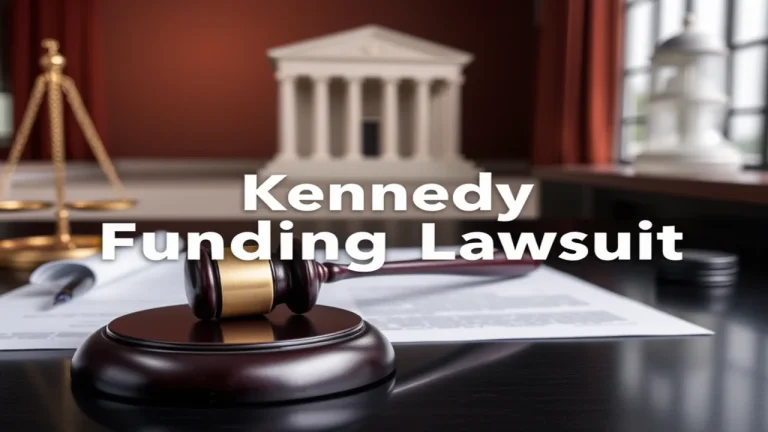Who Has Legal Control Over Property in a Revocable Trust?
A revocable trust is a powerful tool for estate planning, offering individuals the ability to manage their assets during their lifetime and ensure a smooth transition of those assets to their beneficiaries after they pass away. One of the most commonly asked questions when it comes to revocable trusts is: who owns the property in a revocable trust? Understanding this can help you make more informed decisions about managing your property and how it will be handled in the future.
What is a Revocable Trust?
Before diving into the legal control over property in a revocable trust, it’s essential to understand what a revocable trust is. A revocable trust, also known as a living trust, is a legal document that allows you (the grantor) to place your assets into a trust while retaining control over them during your lifetime. As the name suggests, a revocable trust can be amended or revoked at any time, offering flexibility and control.
The primary purpose of a revocable trust is to avoid the lengthy and expensive probate process when you pass away. Instead, assets in the trust are transferred directly to your beneficiaries according to the terms you’ve set. The trust’s administrator, known as a trustee, will manage the property on behalf of the beneficiaries.
Who Owns the Property in a Revocable Trust?
The question “who owns the property in a revocable trust” can be a bit tricky because it involves both legal and beneficial ownership.
Legal Ownership vs. Beneficial Ownership
When you transfer property into a revocable trust, you still maintain control over it as the grantor. You are both the grantor and often the trustee, meaning you still have the right to use and manage the property as you wish. In other words, while the trust technically owns the property, you continue to have legal control because you are the trustee.
However, the concept of beneficial ownership comes into play here. The beneficiaries of the trust, who are typically named in the trust document, will ultimately benefit from the property once you pass away. While you retain control over the property during your lifetime, the trust document outlines who will receive the property when the time comes.
Who Has Control Over the Property?
As mentioned, you, the grantor, often act as the trustee during your lifetime. This gives you the authority to manage and control the property. You can make decisions about selling, transferring, or using the assets, just as if you still owned them outright.
The key takeaway is that who owns the property in a revocable trust is a matter of both legal control and beneficiary rights. As the grantor and trustee, you retain control while you’re alive, but upon your death, the trust’s successor trustee will take over and manage the distribution of the assets according to the instructions you’ve laid out in the trust agreement.
How Can the Grantor Maintain Control?
To maintain full control over your property while it is in a revocable trust, you must include yourself as the trustee. This ensures that you continue to have access to your property and can make decisions regarding its management, whether it’s real estate, investments, or other assets. As the trustee, you can even amend or revoke the trust entirely if you choose to do so.
The flexibility of a revocable trust allows you to adapt to changing circumstances. If your circumstances change or if you wish to transfer property out of the trust, you can do so easily without the need for court approval.
What Happens After the Grantor’s Death?
Once you pass away, the revocable trust becomes irrevocable, meaning it cannot be changed or revoked. The successor trustee, who you have named in the trust document, will take over and manage the assets. At this point, the legal ownership of the property is transferred to the beneficiaries, as dictated by the trust.
The successor trustee has the responsibility of carrying out your wishes as outlined in the trust. This includes distributing property to beneficiaries, paying off any debts or expenses, and managing any remaining assets according to your instructions. Since the trust bypasses the probate process, this transfer of assets is often faster and more cost-effective than traditional methods of inheritance.
Benefits of a Revocable Trust
A revocable trust offers many advantages for estate planning. By answering the question, who owns the property in a revocable trust, you can better understand the benefits of this tool:
- Avoidance of Probate: A revocable trust allows your assets to pass directly to beneficiaries, avoiding the time-consuming and expensive probate process.
- Privacy: Unlike a will, which becomes public record once probated, a trust remains private, ensuring that your financial matters stay confidential.
- Flexibility: Since the trust is revocable, you have the freedom to change or dissolve it as your circumstances evolve.
- Control: The grantor maintains control of the assets during their lifetime and can make changes as they see fit.
Final Thoughts
When planning for the future, it’s crucial to understand who has legal control over your property in a revocable trust. As the grantor and trustee, you maintain full control of your property during your lifetime, but the trust ensures that your wishes are honored after you pass away. By naming a trusted successor trustee and clearly defining your beneficiaries, you can ensure that your estate is distributed according to your desires without the hassle of probate.
If you’re considering establishing a revocable trust and want best guidance on how to best manage your assets, The Law Offices of Brenton McWilliams can help. Our legal professionals will work with you to create a trust that fits your needs and ensures a smooth transition for your loved ones. Contact us today to learn more about how a revocable trust can provide peace of mind and security for the future.







